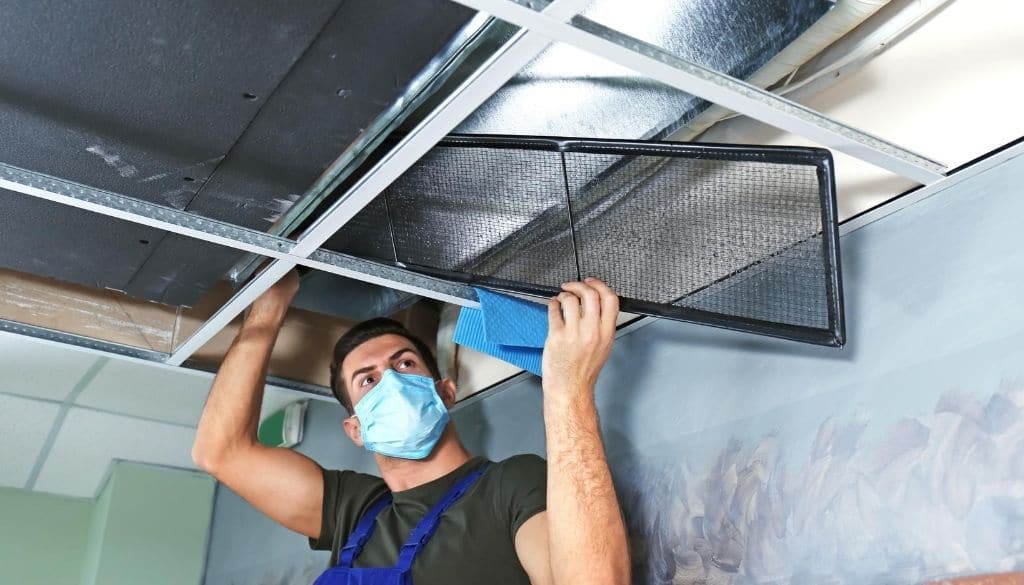Many homeowners and business owners are curious about the potential link between duct cleaning and allergies. Keeping your air ducts clean is crucial for maintaining good indoor air quality, especially if family members or employees suffer from allergies. Proper maintenance of these systems helps prevent the circulation of airborne allergens, which can substantially improve health and comfort.

Why Are Air Ducts Important?
Air ducts are integral to the HVAC systems that provide heating and cooling in our homes and workplaces. They distribute conditioned air throughout the premises. However, over time, these ducts can accumulate dust, dirt, and other pollutants, potentially exacerbating allergy symptoms. For individuals looking to understand what might be floating around in their air, visiting air duct cleaning guide could be beneficial.
How Clean Ducts Benefit Allergies
Clean ducts are essential for neutralizing air pollutants. Regular duct cleaning helps eliminate allergens like mold spores, dust mites, and pet dander, which can trigger allergic reactions. For those questioning why clean air ducts are vital, checking out why clean air ducts is recommended.
Accumulation of Allergens
Over time, allergens accumulate in air ducts, making it difficult for those with allergies to breathe easily. Efficient duct cleaning ensures these particles are removed swiftly and effectively.
Improved Air Quality
Clean ducts significantly enhance indoor air quality by preventing the recirculation of dust and airborne contaminants. You can learn more about avoiding these issues by visiting this guide on ducts.
Signs Your Ducts May Need Cleaning
Recognizing when your ducts need cleaning is vital. Common signs include visible mold growth inside ducts, a musty odor, and dust accumulating near vents. Understanding these signs can help you decide when to seek professional cleaning.
How Often Should Ducts Be Cleaned?
The frequency of cleaning depends on several factors including residential or commercial use. Typically, experts recommend every 3-5 years, but this could vary based on location and individual health needs.
The Role of Professional Cleaning
Hiring professionals ensures the job is done effectively. They have specialized tools and knowledge to address hidden dangers that might be missed in a DIY clean.
Benefits of Professional Cleaning
Professionals can identify mold growth and provide targeted cleaning that’s dramatically better than regular methods. This process not only improves air quality but also increases the longevity of your HVAC system.
DIY CleaningIs It Enough?
While there are steps you can take towards maintaining clean ducts, such as replacing filters regularly, this is often not enough to remove deep-seated contaminants, especially if visible, extensive buildup exists.
Cost of Duct Cleaning
The investment in duct cleaning varies based on property size and contamination level. However, the cost is usually justified by the improvements in air quality and overall HVAC efficiency.
Impact on Energy Efficiency
Clean ducts facilitate better air flow, which means your HVAC system doesn’t have to work as hard to maintain a comfortable temperature. This helps reduce energy bills significantly.
Packing UpWhat Next?
After reading this guide, consider evaluating your current air quality and checking for signs of contamination. Regular inspection and cleaning can go a long way in improving health and energy costs. For more on residential-related specifics, reference residential cleaning.

FAQs
Does duct cleaning prevent allergies?
Yes, keeping ducts clean can significantly reduce allergens present in the air.
How often should ducts be cleaned?
Cleaning ducts every 3-5 years is generally recommended, but it varies depending on individual circumstances.
Is it possible to clean air ducts myself?
While basic maintenance is feasible, professional cleaning is advised for a thorough job.
This article contains affiliate links. We may earn a commission at no extra cost to you.